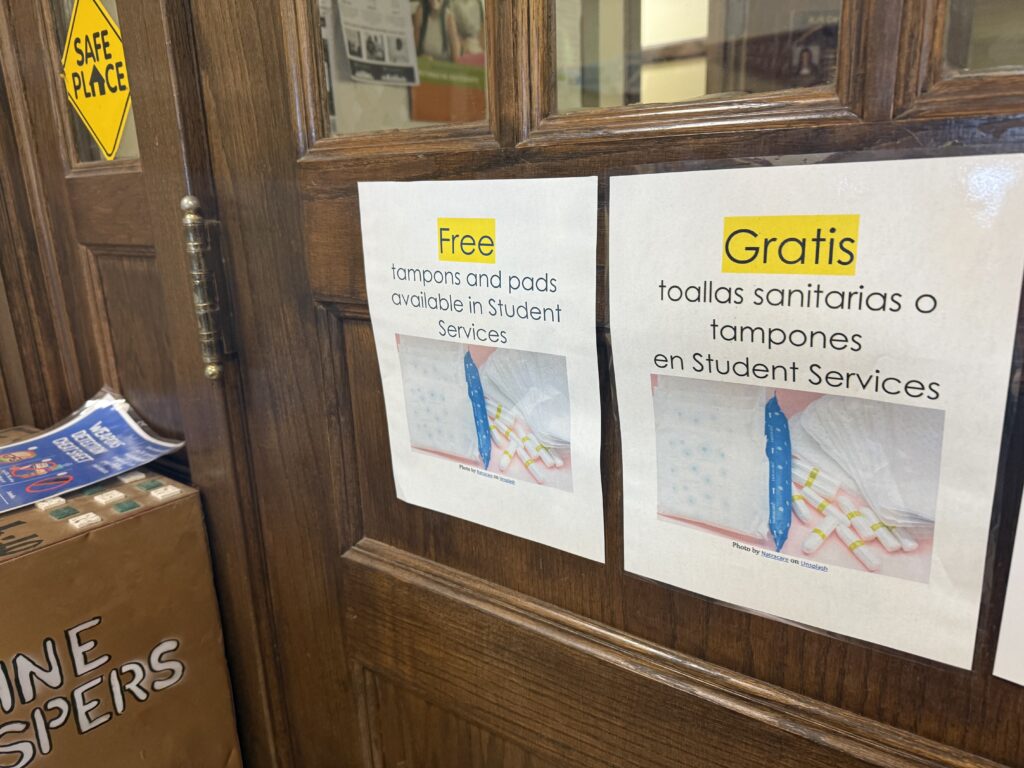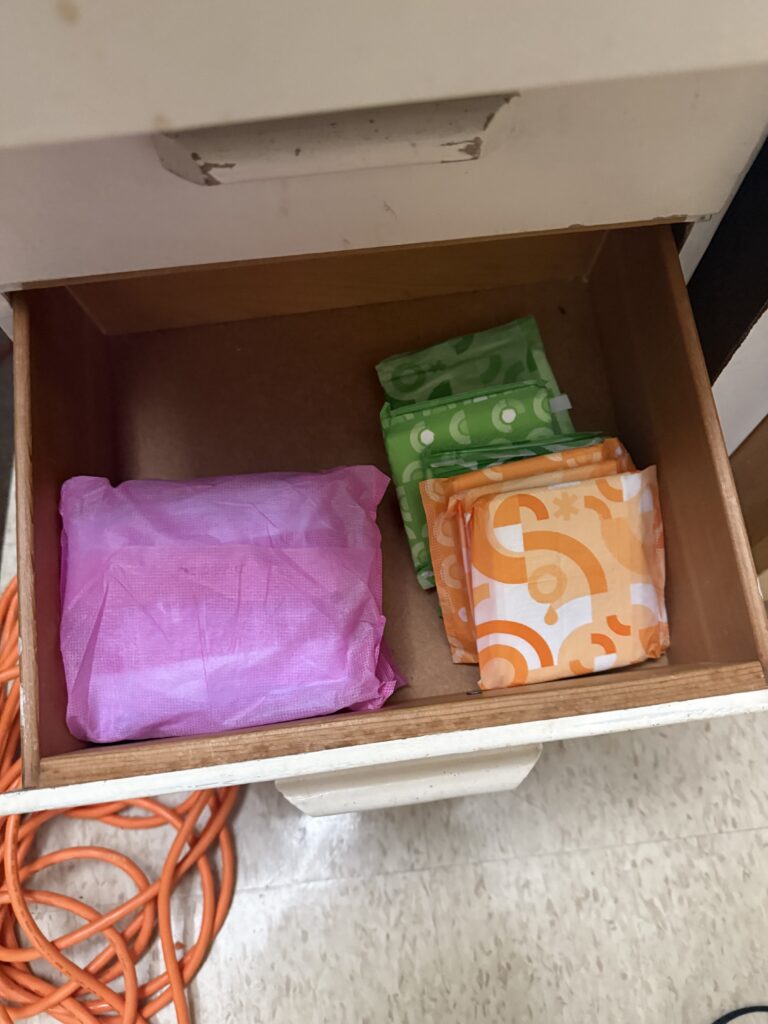By Inés Francom
News Editor
It hits at the most inconvenient times: at the pool, when you’re wearing white pants, at a sleepover, in the middle of vacation, and worst of all, when you’re stuck at school. Getting your period is a regular occurrence for most students at R. J. Reynolds. Your period becomes another part of your routine. Just grab some menstrual products and move on to the next task. But for others, getting your period can be something much more derailing than normal life.
“Period poverty refers to the lack of access to menstrual products, education, and hygiene facilities due to financial constraints,” Assistant Director of Advocacy and Social Justice Education at Wake Forest University Deb Marke said. “It’s a serious issue that affects millions of people worldwide, including students right here in our community.”

As a Title I school, RJR serves many low-income families in Winston-Salem. Low-income students are the most vulnerable to experiencing period poverty. With the help of community members, RJR has found a way to help alleviate the stress surrounding periods for all students.
Partnering with the Wake Forest chapter of the national organization the Period Project, RJR has received donations of ranging types of pads, tampons, and panty liners for the last eight years.
“Every so often, when I see we’re running low, I reach out about every three to six months and ask, hey, can you bring us some more [supplies]? We’re almost out,” RJR guidance counselor Dr. Amy Williams said.
Once delivered by Wake Forest student volunteers, the menstrual products are stored in student services where the products are available to all students throughout the school day.

“There’s a little wooden box, it’s got three or four drawers, so students can help themselves [to products] throughout the day,” Williams said. “We have a steady stream of folks, we put posters up in all of the bathrooms to make sure that students are aware. We have [signs] on the front door as well, in English and Spanish.”
The increased availability of these menstrual products can help support low-income students with the financial burden of pads and tampons and reduce any feelings of shame surrounding the unannounced arrival of a period.
Without this availability, the lack of proper menstrual products can create many issues for students. Not only can finding the menstrual products themselves be a hurdle for students, but lack of proper menstrual products can also be a health concern.
“Some may resort to using unsafe alternatives like toilet paper, rags, or even newspapers,” Marke said. “Period poverty isn’t just an inconvenience—it’s a barrier to education, health, and dignity.”
In addition to the health concerns a lack of menstrual products raises, period poverty also creates an issue of school attendance. Missing school for just a few days isn’t that big of a problem, but when you’re missing one or two days every month of the school year, those absences quickly start to add up.
“I mean, these products are very expensive,” Williams said. “So oftentimes, people miss school because they don’t have the products they need. When they would otherwise be at school. So it’s impacting attendance, and if you’re not at school, you’re missing out on your education, which can impact your grades, which can influence your GPA, which can impact where you can go [after high school].”
The importance of available period products to students is very important to the Period Project. They provide and help distribute products throughout schools in Winston-Salem/Forsyth County Schools.
“We also provide period products to students at Parkland, Carver, Main Street Academy, and two schools in Greensboro,” Marke said. “Beyond schools, we partner with Lead Girls to support over 200 students in their programs. Additionally, we supply products to local nonprofit organizations like the Shalom Project, Sunnyside Ministries, and the Downtown Health Plaza, ensuring that as many people as possible have access to what they need.”
The Period Project keeps its program running through donations of menstrual products and various volunteers. Through the support of donations, the program has been able to run since 2022 on a budget of less than $5,000, even as this program has continued to expand. At RJR, the use of these free supplies has been steadily increasing.
“[The menstrual products] are definitely being used way more now, in the past six years,” Williams said. “[With an] uptick right before the pandemic. You could definitely correlate it with [the] financial situation in our area and across the country.”
Through the continued donations and availability of pads and tampons to RJR students, more and more students are able to use proper menstrual products without the stress of financial burden or embarrassment.
“Our goal is to ensure that every student has the products they need so they can focus on learning, growing, and thriving—without unnecessary stress or shame,” Marke said. “By providing free period products, we’re not just offering supplies, we’re promoting dignity, equity, and the idea that menstrual health is a right, not a privilege.”